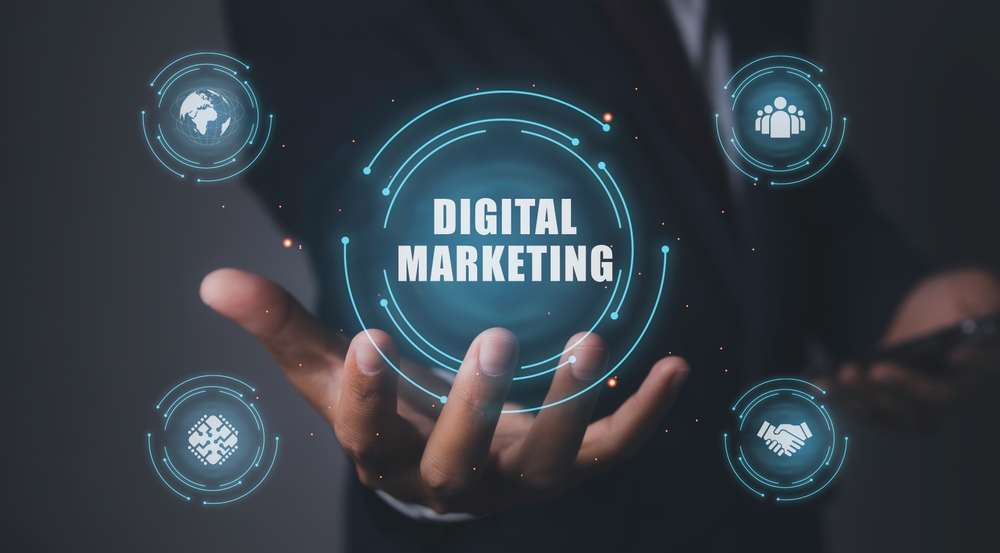Digital marketing has always been a dynamic field, constantly evolving to meet the demands of technological advancements and shifting consumer behaviors. In recent years, artificial intelligence (AI) has become a powerful force that has significantly reshaped the marketing landscape. The AI impact on digital marketing has been profound, offering businesses unparalleled opportunities to enhance their strategies, engage audiences, and drive results like never before. This article explores how AI is transforming the digital marketing landscape, enabling marketers to achieve new heights of innovation and efficiency.
Understanding AI’s Role in Digital Marketing
AI Digital Marketing combines artificial intelligence technologies with marketing strategies to optimize campaigns, improve targeting, and enhance customer experiences. It leverages machine learning algorithms, data analytics, and automation to process vast amounts of data, identify patterns, and make data-driven decisions. This enables marketers to segment audiences more precisely, predict consumer behavior, and deliver personalized content that resonates with individual preferences and needs. AI also automates repetitive tasks, such as email marketing and ad placement, freeing up time for marketers to focus on creative strategies and strategy development. It enhances customer service through chatbots and virtual assistants, providing instant responses and 24/7 support. By analyzing consumer data, AI can identify trends, measure campaign effectiveness, and refine strategies in real time. This results in more targeted marketing efforts, better return on investment (ROI), and the ability to stay ahead of competitors. AI digital marketing is transforming the landscape, enabling businesses to create more personalized and efficient marketing campaigns that engage and convert customers.
Key Applications of AI in Digital Marketing
Personalization at Scale
AI enables marketers to develop highly personalized campaigns that are specifically tailored to individual preferences. By analyzing vast amounts of data, AI based digital marketing identifies patterns in consumer behavior, enabling businesses to deliver relevant content, recommendations, and offers. This level of personalization fosters stronger customer relationships and improves conversion rates.
Enhanced Customer Insights
Traditional methods of gathering customer insights are time-consuming and often lack depth. AI simplifies this process by analyzing data from multiple sources—such as social media, website behavior, and purchase history—to provide actionable insights. This data allows marketers to predict customer needs and adjust their strategies accordingly.
Chatbots and Virtual Assistants
AI-powered chatbots how AI is revolutionizing digital marketing customer service by providing instant support and seamless interactions. These tools can handle inquiries, offer product suggestions, and guide customers through their purchase journey, ensuring a positive experience while reducing the workload on human agents.
Predictive Analytics for Smarter Decisions
Predictive analytics allows marketers to forecast trends, identify opportunities, and optimize their campaigns. By analyzing historical data, AI predicts future behaviors, enabling brands to stay ahead of the competition and allocate resources more effectively.
The Benefits of AI in Digital Marketing
Improved Efficiency and Automation
AI automates routine tasks like data entry, email marketing, and ad placement, allowing marketers to dedicate more time to strategic thinking and creative efforts. Automation not only boosts efficiency but also reduces the margin for error, ensuring consistent and accurate execution of campaigns.
Real-Time Customer Engagement
AI enables brands to interact with customers in real-time, delivering timely and relevant messages. For example, AI-driven recommendation engines suggest products based on browsing behavior, enhancing the shopping experience and increasing sales potential.
Cost-Effectiveness
By streamlining processes and optimizing resource allocation, AI helps businesses achieve more with less. Automated tools reduce the need for extensive human intervention, resulting in significant cost savings without compromising quality.
Challenges of Implementing AI in Digital Marketing
Despite its many benefits, integrating AI into digital marketing comes with challenges. These include:
Data Privacy and Security Concerns
With AI relying heavily on data, ensuring compliance with privacy regulations and protecting customer information is paramount. Marketers must adopt robust security measures and transparent data practices.
High Implementation Costs
While AI can lead to long-term cost savings, the initial investment required for AI-powered tools and training can be significant. Small businesses may find it challenging to allocate resources for adoption.
Skill Gaps
Effectively leveraging AI requires technical expertise. Businesses need to upskill their teams or hire professionals with AI knowledge to maximize its potential.
Real-World Examples of AI Impact on Digital Marketing
Netflix’s Personalized Recommendations
Netflix utilizes AI to analyze viewing history and preferences, offering personalized content recommendations to its users. This method not only improves user satisfaction but also boosts engagement and retention rates.
Coca-Cola’s AI-Powered Campaigns
Coca-Cola employs AI to analyze social media trends and create targeted campaigns. By understanding what resonates with their audience, how AI will impact digital marketing messaging that boosts brand loyalty.
Sephora’s Virtual Assistants
Sephora leverages AI-powered chatbots and virtual try-on tools to enhance the customer experience. These technologies allow users to explore products, receive tailored recommendations, and make informed purchase decisions.
The Future of AI in Digital Marketing
The AI impact on digital marketing is only set to grow as technology continues to advance. Emerging trends include:
Voice Search Optimization: AI will play a crucial role in optimizing content for voice search, making it easier for users to find information through virtual assistants like Alexa and Google Assistant.
Augmented Reality (AR) Integration: AI-powered AR experiences will enable brands to engage customers in innovative ways, such as virtual try-ons and interactive product demonstrations.
Ethical AI Practices: As AI adoption increases, businesses will prioritize ethical AI practices to ensure transparency, fairness, and inclusivity in their marketing efforts.
Conclusion
In a world where digital marketing is constantly evolving, the power of AI cannot be underestimated. The AI impact on digital marketing has opened new avenues for creativity, efficiency, and customer engagement. By embracing AI-driven tools and strategies, businesses can stay competitive, deliver exceptional experiences, and achieve remarkable results. As AI continues to shape the future of marketing, those who adapt and innovate will be best positioned to thrive in this dynamic landscape.


